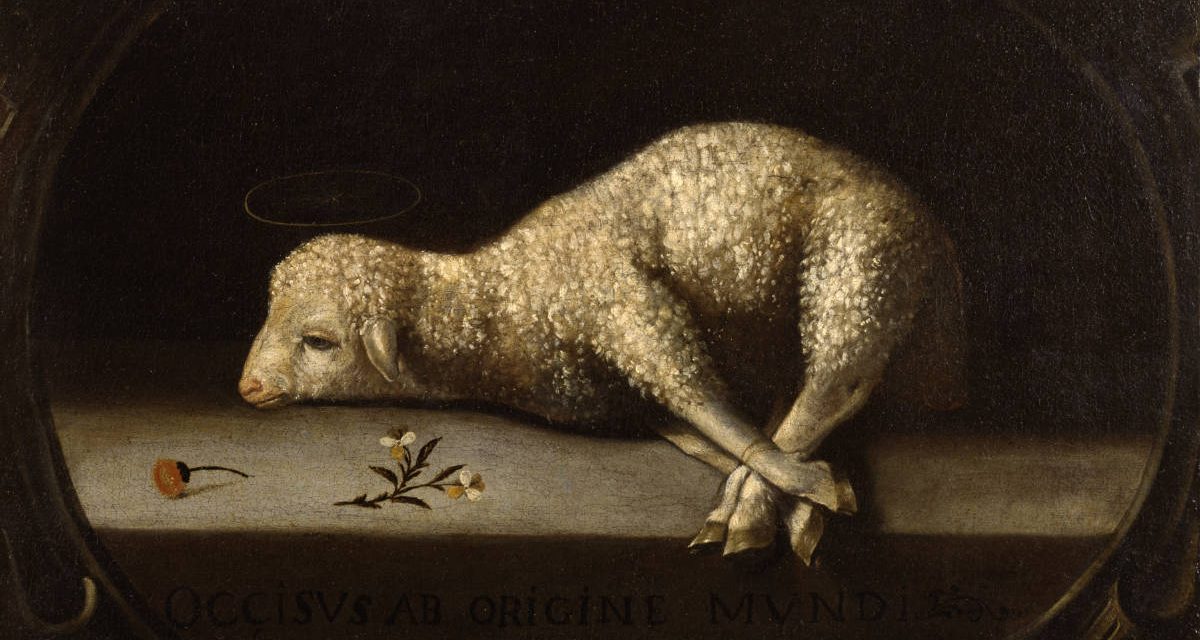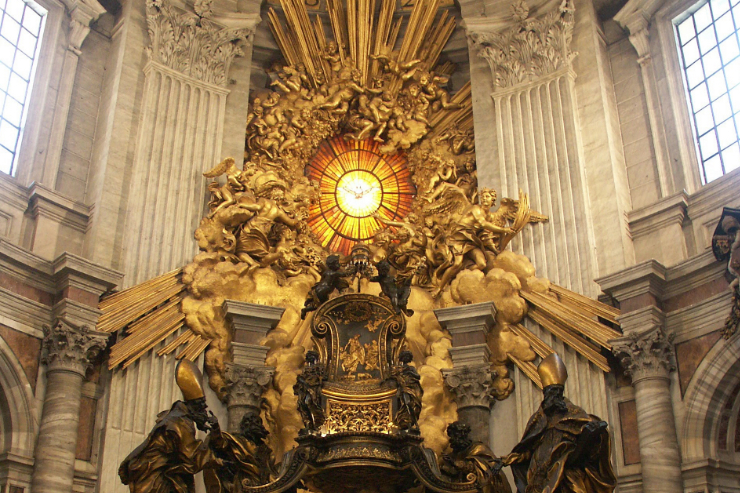With the mystery of the Incarnation, it becomes possible. God had to become man… and he did it in order to lay down his life for his sheep.
This Sunday is “Good Shepherd Sunday,” a time when the readings (regardless of whether we are in Year A, B, or C) present the image of God as our shepherd. This motif runs throughout the Old and New Testaments. It’s important to realize that when Jesus adopts the title for himself in his preaching (for example in John 10), he is echoing what has been taught through the prophets and the Psalms.
Much can be said about the image of shepherd and sheep, but for this Sunday’s readings, I’d like to look at the second reading from Saint Peter.
Following the Shepherd
The reading begins with a difficult assignment from Peter: that we are to imitate Christ in his Passion.
Peter goes too far as to say this is our calling, our vocation. To suffer. And not just to suffer, but to suffer as Christ did. To suffer patiently, silently, and even under injustice.
Why? Because we must follow the example of the Shepherd. As sheep, we have wandered and gone astray. Sheep that aren’t part of the flock, that are alone, do not survive. Sheep alone, by themselves, are not protected from the elements. They are not protected from enemies.
Our only chance to live is to be rescued from where we have wandered. And how does that happen? The Good Shepherd seeks us out and we follow him.
He wants to give us life, but life only comes from following him. From imitating him.
What does a Good Shepherd Do?
When we look at the Old Testament, whether is Ezekiel 34, Psalm 23, or Jeremiah 23, we find the characteristics of good shepherds. A good shepherd leads, protects, feeds, heals, and gathers his flock.
When Jesus presents himself as the Good Shepherd, he echoes these attributes. He speaks of gathering and protecting. We see him healing and feeding. But there’s something more to this Good Shepherd. There’s something else this Good Shepherd promises to do in John 10. He promises it four times, to be exact (just after the passage we will hear on Sunday).
“I am the good shepherd. A good shepherd lays down his life for the sheep.” (Jn 10:11)
“…Just as the Father knows me and I know the Father; and I will lay down my life for the sheep.” (Jn 10:15)
“This is why the Father loves me, because I lay down my life in order to take it up again.” (Jn 10:17)
“No one takes it from me, but I lay it down on my own. I have power to lay it down, and power to take it up again.” (Jn 10:18)
In the Old Testament, in very prominent verses about shepherds leading and protecting, what does it not mention? The Shepherd dying for the sheep.
You know why?
God is the greatest Shepherd in the Old Testament. He is the one who leads and rescues and protects and searches and gathers, and the others (David, etc) are just shadows, imitators, and servants of him as Chief Shepherd. But even though He is the greatest, there is one thing he could not do.
He could not lay down his life for the sheep. He could not die for them.
With the mystery of the Incarnation, it becomes possible. God had to become man… and he did it in order to lay down his life for his sheep.
How is God going to protect, gather, heal, and feed his sheep? By dying for us. But to do that… he had to become the sheep.
Called to Imitate His Love
And now the mission is given to us.
As I have loved you, so you also should love one another. This is how all will know that you are my disciples, if you have love for one another.” (Jn 13:34–35)
We are to imitate the Good Shepherd. And not just in any way: in his greatest act of love.
“If you are patient when you suffer for doing what is good,
this is a grace before God.
For to this you have been called,
because Christ also suffered for you,
leaving you an example that you should follow in his footsteps.
He committed no sin, and no deceit was found in his mouth” (1 Peter 2:20-21).
St. Gregory the Great said that a shepherd can only be known in trial. In speaking of Jesus’ warning against false shepherds, Gregory says, “Whether a man is indeed a shepherd, or but a hireling, can only be known when a time of trial comes.”
When it gets difficult, a shepherd stays with his flock. Even if it means laying down his life for them. That is what we need in shepherds today.
But the same should be said for the sheep. When it gets difficult, will we stay with the Shepherd? Even a Shepherd who asks us to suffer insults patiently and silently?
I’ll tell you from my experience, it’s tempting to cut and run. It’s hard to suffer, especially to suffer injustice silently. We want to defend and speak out and protect our pride. But that’s not what he did. So as tempting as it might be to leave the flock and to leave the Shepherd, we must believe him when he says, “I came so that they might have life and have it more abundantly” (John 10:10).
Suffering with Him, suffering like Him, isn’t easy. But it is the key to life.
Image credit: “The Sacrificial Lamb” (detail) | Josefa de Óbidos, Public domain, via Wikimedia Commons
Please Help Us — Our intentionally minimal fundraising is currently insufficient to cover operating expenses. Please read below:
We strive to operate on a very small budget, but we need your help. Both one-time and monthly donations are welcome. Just $10 a month will help cover the cost of operating Integrated Catholic Life for one day! Please help us bring enriching and inspiring Catholic content to readers around the world by giving today. Thank you!
Please help spread the Gospel. Share this article with family and friends on Facebook and other social media.














